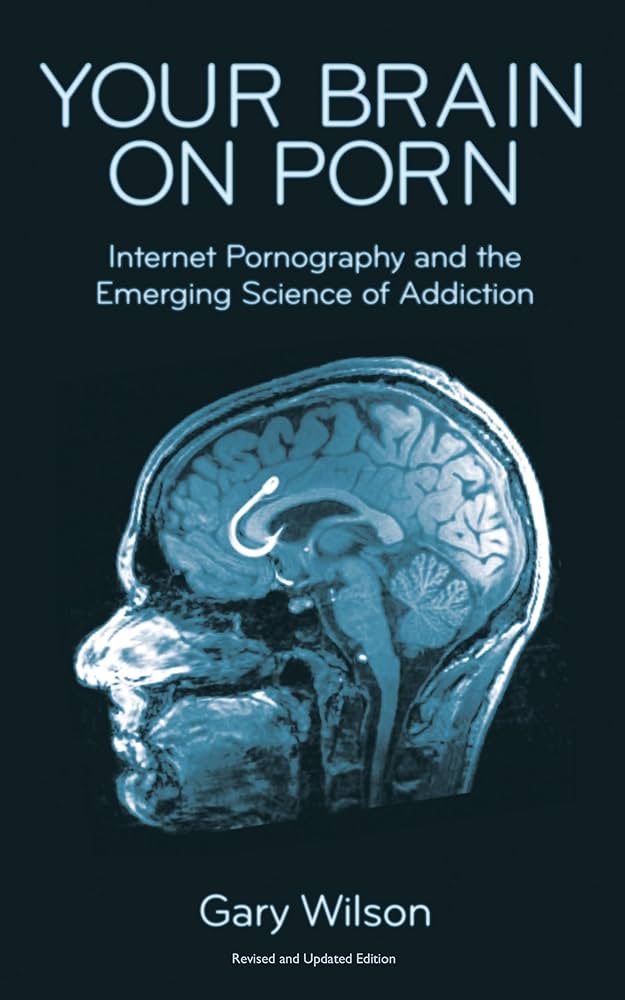
“Your Brain on Porn” by Gary Wilson is a groundbreaking exploration of how internet pornography affects the brain and behavior. Wilson argues that porn addiction is a legitimate public health issue, backed by scientific research and personal stories. The book offers hope and strategies for recovery, emphasizing the brain’s ability to rewire itself through “rebooting.” With its accessible writing and compelling narrative, this book is a must-read for anyone seeking to understand the impact of pornography on mental and physical health.
Audio Note Option Comming Soon...
Gary Wilson’s Your Brain on Porn is a revolutionary deep dive into how modern pornography—particularly internet porn—rewires the brain, leading to addiction, sexual dysfunction, and mental health issues. Unlike traditional moral arguments against porn, Wilson approaches the subject through neuroscience, psychology, and real-world case studies. His work has sparked global discussions, helping thousands recognize and recover from compulsive porn use.
The book challenges the common misconception that porn is harmless entertainment. Instead, Wilson presents compelling evidence that excessive consumption can lead to:
Erectile dysfunction (PIED: Porn-Induced Erectile Dysfunction)
Loss of motivation and focus (similar to ADHD symptoms)
Emotional numbness and social anxiety
Escalation to extreme or fetish content
Powered by WisionX, this summary breaks down Wilson’s findings into digestible insights for those seeking to understand—or overcome—pornography’s grip on the brain.
The brain’s reward system relies on dopamine, a neurotransmitter linked to pleasure and motivation.
Porn triggers unnaturally high dopamine surges, comparable to drugs like cocaine, because of its novelty and endless variety.
Over time, the brain downregulates dopamine receptors, leading to desensitization (needing more extreme content for the same arousal).
The brain adapts to repeated stimuli through neuroplasticity, forming and strengthening neural pathways.
Frequent porn use strengthens addiction-related circuits while weakening those for self-control and natural arousal.
This explains why quitting porn can initially cause withdrawal symptoms (irritability, anxiety, low mood).
A biological phenomenon where males (and some females) lose interest in a sexual partner after orgasm but remain aroused by new mates.
Porn exploits this by offering limitless novelty, making real-life partners seem less stimulating.
This leads to “escalation” users seeking more extreme or taboo content to maintain arousal.
Young men in their 20s, who should have no physical issues, are increasingly reporting ED.
The brain prefers the hyper-stimulation of porn over real intimacy, leading to performance anxiety and desensitization.
Many recover after a “reboot” (abstaining from porn for months).
Chronic porn use depletes dopamine, leading to:
Lowered motivation (similar to depression)
Brain fog and poor concentration
Social anxiety and reduced empathy
Some users report improved focus and confidence after quitting.
Porn shapes unrealistic expectations about sex and body image.
Partners of porn addicts often report feeling betrayed, inadequate, or emotionally disconnected.
Recovery can restore natural attraction and deeper intimacy.
Wilson’s book doesn’t just diagnose the problem, it offers practical solutions.
Quitting porn can cause temporary withdrawal symptoms:
Mood swings
Anxiety or depression
Strong cravings
These are signs the brain is rebalancing itself.
A full reboot typically takes 3-6 months, depending on addiction severity.
Key steps:
Complete abstinence from porn (and often masturbation, at least initially).
Replacing the habit with exercise, hobbies, or social activities.
Mindfulness techniques to manage cravings.
The book features real-world accounts of men (and some women) who:
Regained erectile function.
Improved relationships.
Found renewed energy and focus.
Wilson critiques cultural blind spots, including:
“Porn is harmless” myth, despite mounting neurological evidence.
Industry influence, like Big Tobacco, porn companies downplay risks.
Lack of research funding, governments avoid controversial topics.
He argues for better education, especially for teens, to prevent addiction before it starts.
Porn addiction is real, backed by neuroscience, not just morality.
Dopamine dysregulation explains loss of motivation and escalating use.
Rebooting works, many recover sexual function and mental clarity after quitting.
Withdrawal is temporary, symptoms fade as the brain heals.
Relationships improve when porn no longer distorts expectations.
Prevention is key, educating youth can reduce future addiction rates.
Comments
1Thanks for sharing!